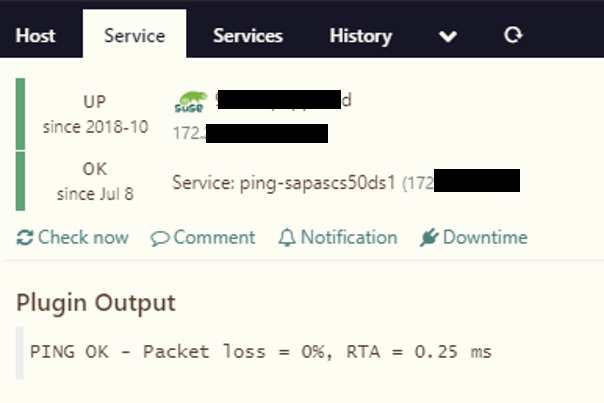Good morning,
I want to check more than one IP on a host/ more IPs from a host, but I think my config does not work:
Service:
apply Service for (ping => config in host.vars.ping_additional) {
import "generic-service"
check_command = "ping"
vars += config
vars.ping = ping
vars.sla = "workhours"
display_name = "ping-" + vars.descr
vars.notification["mail"] = {
groups = [ "unix" ]
}
assign where host.vars.ping_additional != ""
}
Host (example):
object Host "example" {
import "generic-host"
address = "IP"
notes = "Developement"
vars.ping_additional["172.0.0.100"] = { descr = "sapascs50ds1" }
vars.ping_additional["172.0.0.110"] = { descr = "sapascs50ds2" }
}
Icingaweb Output:

Status OK, but there is no change to critical when the second IP is unreachable.
Is there a better way to check multi IPs for host cluster?